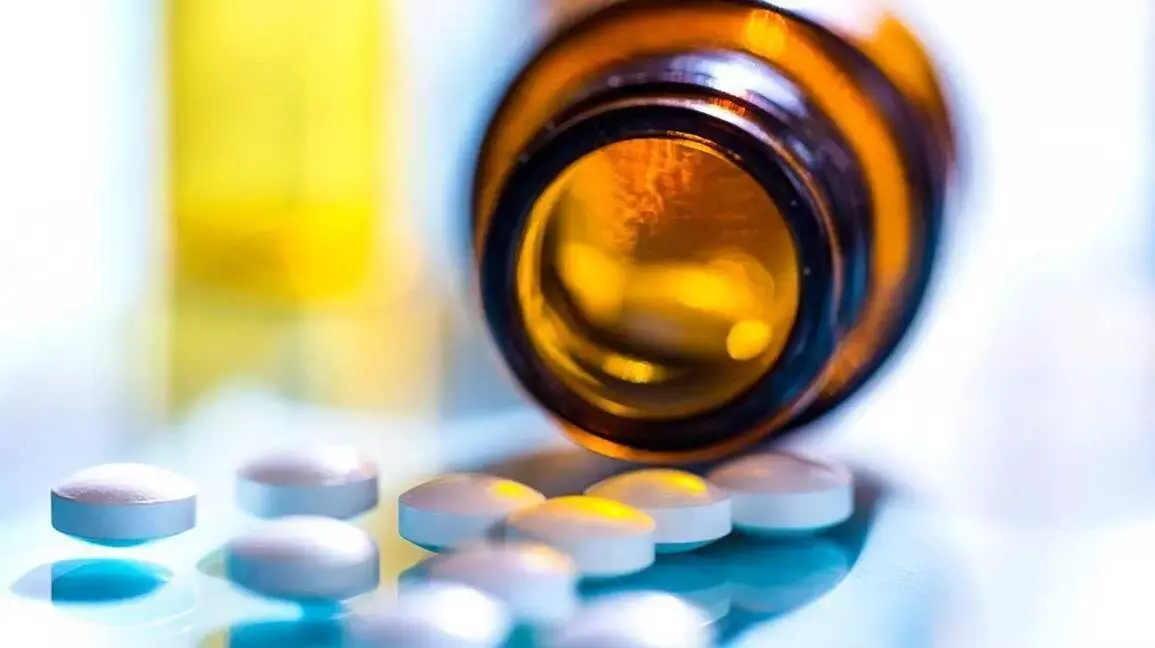- Home
- Medical news & Guidelines
- Anesthesiology
- Cardiology and CTVS
- Critical Care
- Dentistry
- Dermatology
- Diabetes and Endocrinology
- ENT
- Gastroenterology
- Medicine
- Nephrology
- Neurology
- Obstretics-Gynaecology
- Oncology
- Ophthalmology
- Orthopaedics
- Pediatrics-Neonatology
- Psychiatry
- Pulmonology
- Radiology
- Surgery
- Urology
- Laboratory Medicine
- Diet
- Nursing
- Paramedical
- Physiotherapy
- Health news
- Fact Check
- Bone Health Fact Check
- Brain Health Fact Check
- Cancer Related Fact Check
- Child Care Fact Check
- Dental and oral health fact check
- Diabetes and metabolic health fact check
- Diet and Nutrition Fact Check
- Eye and ENT Care Fact Check
- Fitness fact check
- Gut health fact check
- Heart health fact check
- Kidney health fact check
- Medical education fact check
- Men's health fact check
- Respiratory fact check
- Skin and hair care fact check
- Vaccine and Immunization fact check
- Women's health fact check
- AYUSH
- State News
- Andaman and Nicobar Islands
- Andhra Pradesh
- Arunachal Pradesh
- Assam
- Bihar
- Chandigarh
- Chattisgarh
- Dadra and Nagar Haveli
- Daman and Diu
- Delhi
- Goa
- Gujarat
- Haryana
- Himachal Pradesh
- Jammu & Kashmir
- Jharkhand
- Karnataka
- Kerala
- Ladakh
- Lakshadweep
- Madhya Pradesh
- Maharashtra
- Manipur
- Meghalaya
- Mizoram
- Nagaland
- Odisha
- Puducherry
- Punjab
- Rajasthan
- Sikkim
- Tamil Nadu
- Telangana
- Tripura
- Uttar Pradesh
- Uttrakhand
- West Bengal
- Medical Education
- Industry
Oral octreotide as good as injectable somatostatin receptor ligands for acromegaly treatment: Lancet

Moscow, Russia: New research found that oral octreotide was not inferior to injectable somatostatin receptor ligands (iSRLs) medication and may be a better option for many people with acromegaly. This study was conducted by Maria Fleseriu and the team, the results of which were published in The Lancet Diabetes & Endocrinology on 22nd December 2022.
Despite biochemically responding to iSRLs, many acromegaly patients have treatment difficulties. In this trial, researchers wanted to compare the maintenance of biochemical response and symptomatic management with oral octreotide capsules vs iSRLs in acromegaly patients who had previously tolerated and responded to both.
This was a global, open-label, randomized controlled phase 3 study, conducted at 29 clinical sites in Austria, France, Germany, Hungary, Italy, Lithuania, Russia, Serbia, Spain, and the United States. Adults aged 18–75 years with acromegaly who had been taking iSRLs (long-acting octreotide or lanreotide autogel) for at least 6 months prior to baseline with a stable dosage for at least 4 months and were regarded biochemically responsive were eligible. During the 26-week run-in period, all patients were given oral octreotide (40 mg a day, optional titration to 60 or 80 mg a day). Completion of the run-in phase as a biochemical responder and investigator assessment of acromegaly being satisfactorily controlled qualified participants for the randomized treatment phase.
Patients were allocated (3:2) to either oral octreotide capsules or iSRL at the same dose and interval as before enrollment. A certified randomization service provider carried out the randomization and medication distribution (eg, interactive web or voice response system). The primary outcome was a non-inferiority evaluation of the proportion of patients who maintained biochemical response throughout the randomized treatment period (margin 20 percentage points). During the run-in and randomized treatment periods, IGF-I levels were measured once a month (single sample). The randomized population was subjected to efficacy and safety studies.
The Key findings of this work were:
1. 218 patients were evaluated for eligibility between February 11, 2016, and August 20, 2020. 72 patients were eliminated, leaving 146 participants in the run-in phase.
2. The run-in phase was completed by 116 patients, with 30 individuals discontinuing therapy. Oral octreotide (n=55) or iSRL (n=37) were given to 92 subjects at random.
3. The biochemical response was sustained in 50 (91%) of the 55 subjects who received oral octreotide and 37 (100%) of the 37 participants who received iSRLs.
4. The lower bound of the 2-sided 95 percent CI for the adjusted proportional difference between the two treatment groups met the prespecified non-inferiority criteria of 20%.
5. Treatment-related adverse events occurred in 19 (35%) of the 55 individuals in the oral octreotide group and 15 (41%) of the 37 participants in the iSRL group, with gastrointestinal symptoms being the most prevalent in both groups.
Reference:
Fleseriu, M., Dreval, A., Bondar, I., Vagapova, G., Macut, D., Pokramovich, Y. G., Molitch, M. E., Leonova, N., Raverot, G., Grineva, E., Poteshkin, Y. E., Gilgun-Sherki, Y., Ludlam, W. H., Patou, G., Haviv, A., Gordon, M. B., Biermasz, N. R., Melmed, S., & Strasburger, C. J. (2021). Maintenance of response to oral octreotide compared with injectable somatostatin receptor ligands in patients with acromegaly: a phase 3, multicentre, randomised controlled trial. In The Lancet Diabetes & Endocrinology. Elsevier BV. https://doi.org/10.1016/s2213-8587(21)00296-5
Medical Dialogues consists of a team of passionate medical/scientific writers, led by doctors and healthcare researchers. Our team efforts to bring you updated and timely news about the important happenings of the medical and healthcare sector. Our editorial team can be reached at editorial@medicaldialogues.in.
Dr Kamal Kant Kohli-MBBS, DTCD- a chest specialist with more than 30 years of practice and a flair for writing clinical articles, Dr Kamal Kant Kohli joined Medical Dialogues as a Chief Editor of Medical News. Besides writing articles, as an editor, he proofreads and verifies all the medical content published on Medical Dialogues including those coming from journals, studies,medical conferences,guidelines etc. Email: drkohli@medicaldialogues.in. Contact no. 011-43720751


